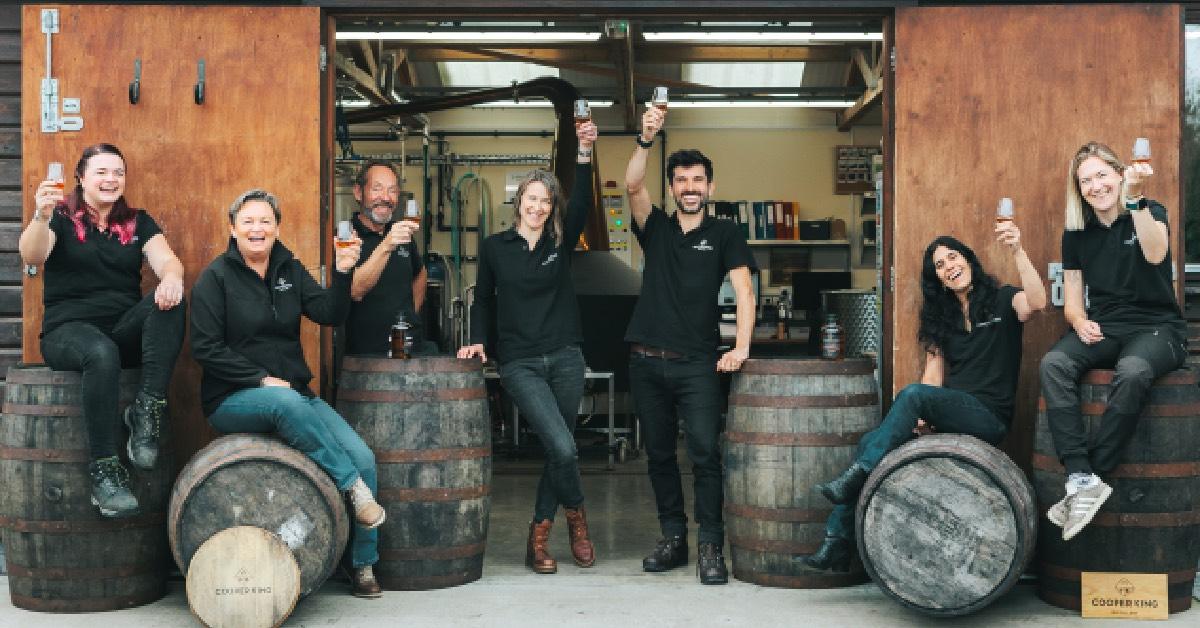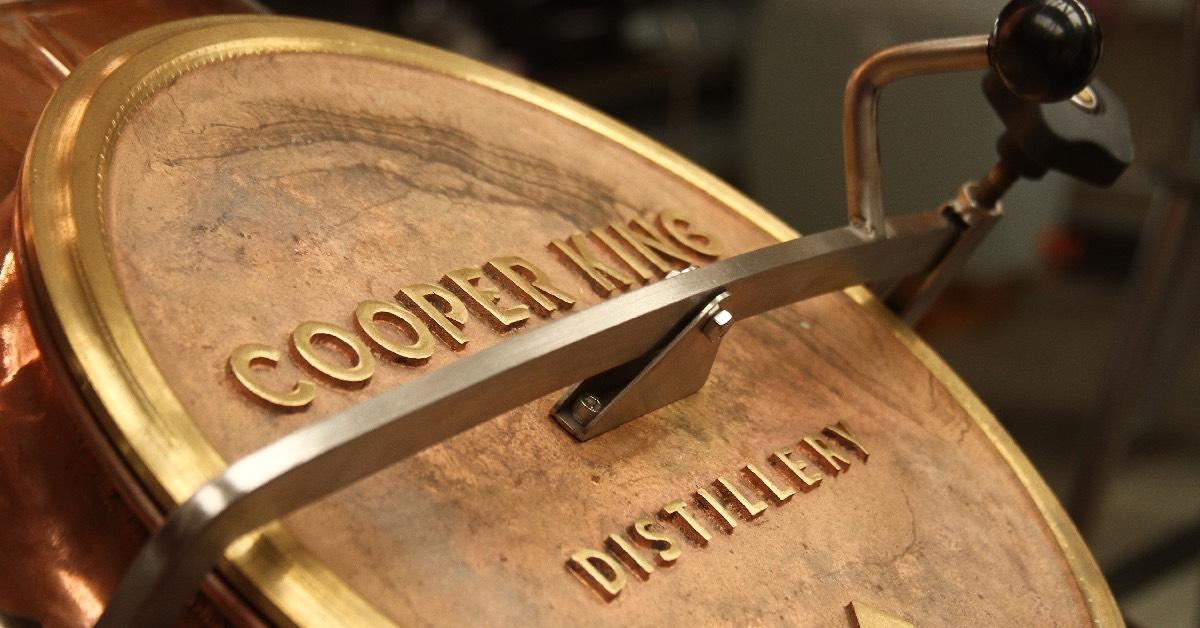Subscribe to trusted local news
If you are accessing this story via Facebook but you are a subscriber then you will be unable to access the story. Facebook wants you to stay and read in the app and your login details are not shared with Facebook. If you experience problems with accessing the news but have subscribed, please contact subscriptions@thestrayferret.co.uk. In a time of both misinformation and too much information, quality journalism is more crucial than ever. By subscribing, you can help us get the story right.
- Subscription costs less than £1 a week with an annual plan.
Already a subscriber? Log in here.
17
May 2024
The Yorkshire distilleries putting English whisky on the map

When you think about whisky, two images can typically spring to mind – either the rolling hills of the Scottish Highlands or a drink from a decanter, poured by a well-dressed man, Mad Men style.
Unsurprisingly there’s much more nuance to whisky than the usual stereotypes, and the myth-busting starts with geographical location. South of the Scottish border, but still proudly Northern, there’s a burgeoning whisky scene developing in Yorkshire.
So, what is it about the combination of whisky and Yorkshire that goes down so smoothly? This World Whisky Day – Saturday, May 18 – local distillers explain how they’re ensuring English whisky is part of the conversation.
‘The first stage of making whisky – make beer’
If a move to producing whisky seems out of the blue for award-winning gin distillery Whittaker’s , it isn’t – for founders Toby and Jane Whittaker and their team, it’s been a carefully considered project that began five years ago.
Toby explained:
I personally like the idea of getting involved in something that’s in the early stages. English whisky is a pretty new thing, but it is growing – it feels like a novelty, we’re pioneers if you like, of the English whisky scene.
Whittaker’s is launching their first release of whisky in August this year; their initial batch has produced 2,500 bottles, and from first brew to finished product, the maturation process has taken the better part of half a decade.
Discussing the length of the process, Toby said:
The first stage of making whisky – make beer. But it’s not beer as we know it. Learning how to do that – it might sound easy – but it’s not.
It’s quite a complicated process, making whisky, with a lot of different stages, but that makes it interesting and it’s satisfying to bring the elements together and make your own whisky that is unique to where you are.
While we might look to double our production, I don’t think it’ll get much bigger than that- that’s not what we’re about, we want to keep it niche.

(Pexels)
According to Toby, the essence of Yorkshire is very much captured in a bottle of Whittaker’s whisky; from the locally grown barley to the water sourced from the spring running through the family property, Harewell House Farm, the end product is a drink ‘strongly identified with Nidderdale’.
Whittaker’s is also one of the founding members of the English Whisky Guild, an organisation made up of 24 traders, established to protect the integrity of English whisky, with the aim for it to become recognised and respected globally.
The eventual goal would be to have English whisky granted a Geographical Indication (GI) status by the government, meaning that any whisky bearing the claim would have to be authentically English.
We want to avoid a trader exporting a load of whisky from Canada for example and sticking a label on it claiming it to be English. We want to protect the category and definition of English single malt and promote it as being an option for whisky drinkers.
Like Japanese whisky has been able to do over the last 25 years, we want English whisky to be known as a stand-alone in its own way.

(Whittaker’s Whisky)
Toby ‘sees no reason’ why Yorkshire couldn’t be at the forefront of this new whisky revolution – after all, he feels that the climate and landscape lends itself to successful production.
He added:
Yorkshire barley grows galore – it’s a fabulous place to grow barley. So why as a region we haven’t made more whisky sooner is beyond me.
We’ve had some great feedback on our product already. Last year we took samples to the English Whisky festival in Birmingham and presented it to an audience of 500 whisky enthusiasts and they loved it.
We’re very optimistic and pleased with what we’ve created.
‘It’s an incredibly exciting time to be both whisky drinker and maker’
Another business representing the Yorkshire chapter of the English Whisky Guild is Cooper King Distillery, based around 10 miles from York, in Sutton-on-the-Forest.
Abbie and Chris Jaume first established the distillery after learning all the tricks of the trade while living in Tasmania – especially the art of creating sustainable spirits.

(Cooper King Distillery)
After returning to Abbie’s home county of Yorkshire, they took the plunge and through a combination of investment, crowdfunding, and plenty of self-sacrifice, they established Cooper King Distillery in 2018. With the first batch of whisky made available to customers in October last year, Abbie believes that it’s the opportune moment to be in the industry.
She said:
English whisky in particular is experiencing unprecedented growth, and with such a diverse range of producers, it’s an incredibly exciting time to be both whisky drinker and maker.
We are witnessing people of all ages showing an appreciation for whisky – certainly not just the older generation.
Part of Cooper King’s dedication to establishing English whisky as a household name, is the preservation of the rural landscapes from which many of the ingredients are sourced. According to the distillery, it produces the first single malt whisky to be distilled using Net-Zero energy.
Abbie explained:
There is an urgent need to protect and restore our delicate rural landscapes, to reverse biodiversity loss and to help the UK achieve net zero by 2050.
To achieve net zero energy status, we developed innovative and sustainable distilling processes, utilised NASA technology paint on our still and sourced 100 per cent renewable energy. Alongside this, we have actively reduced the carbon footprint of our operations to as close to zero as possible.
Our net zero energy achievement is the result of six years’ dedication to sustainability. The entire Cooper King team is dedicated to producing sustainable spirits that drive positive change.

(Cooper King Distillery)
Additionally, £5 from every bottle is donated to its charity partner, Yorkshire Dales Millennium Trust which funds rural apprenticeships for young people in the local area. The work includes restoring and protecting precious habitats such as the Yorkshire peatlands, to safeguard their natural carbon storage.
Speaking on what producing – and drinking – whisky means to her, Abbie added:
I reflect on this question often and ask it to the many people I meet who drink or work in whisky, to understand why it has such an enormous loyal following. It can be hard for people to articulate the answer, but there is always a deep emotional connection at the core of it.
Whisky involves many industries – agriculture, engineering, technology, science, food, hospitality, to name a few – and it often captures the essence of a place, the landscape and the people within it.
It tells a story. It connects people to memories, to each other and to a global community of whisky enthusiasts who are curious and on a never-ending journey of discovery.
0